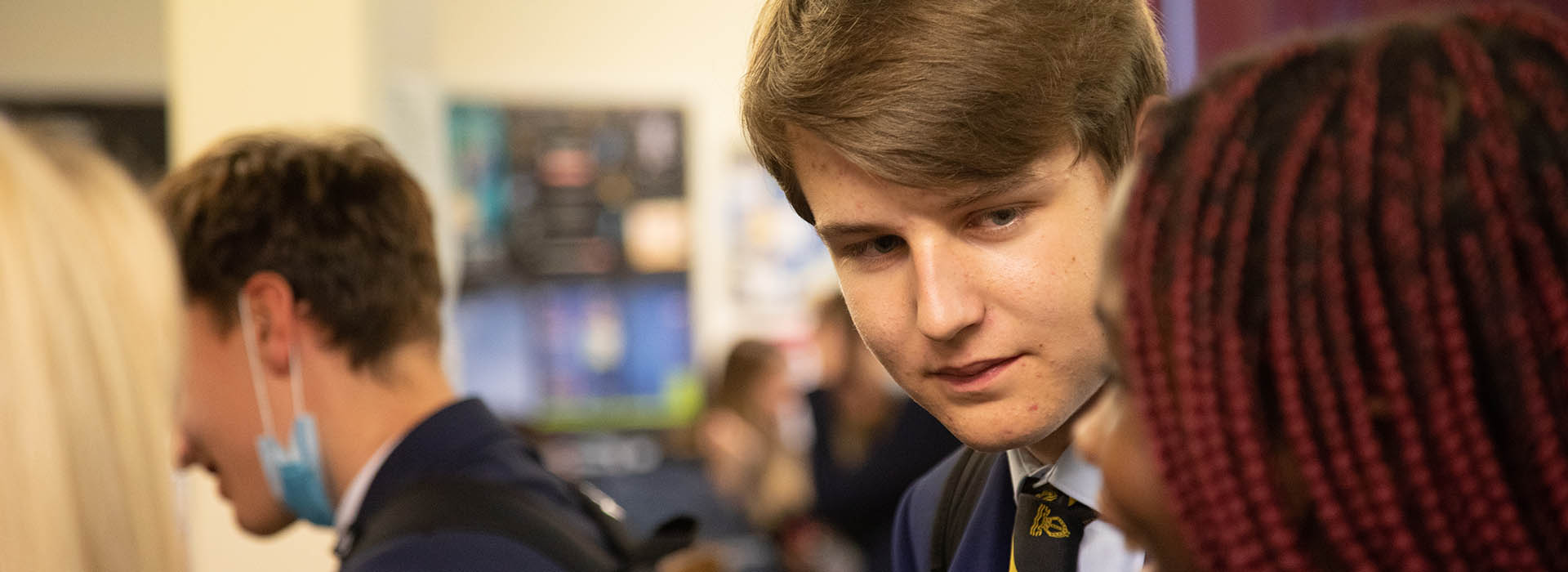Biology
MINIMUM REQUIREMENTS: Grade 6 in Biology, Separate Sciences or a 6 in all Biology modules of a combined science qualification, Grade 6 in GCSE Mathematics is recommended but if you have a grade 5 you will need to take Core Maths as your enhancement option.
Subject Leader: Mr M Smith
Examination Board: AQA
A-Level Syllabus: 7402
Examinations: 100% (also included is a practical endorsement award)
‘What is A-Level Biology?
In the first year, Biology covers the biology of cells and how they are specialised for different functions. Transport and gas exchange systems rely on these specialised cells to function efficiently. The membranes both within and surrounding the cells are studded with proteins, and students will learn how these are involved in cell communication and defending against disease.
Organisms show variation and the second unit looks at the genetic and environmental factors which cause variation. Similarities and differences are looked at both on a biochemical basis and at a cellular level.
The second year of the Biology course covers populations and environment and control in cells and organisms. The course is very broad based and students are expected to apply their knowledge to new situations.
What makes a good biologist?
A good biologist is expected to appreciate that Biology is a developing science, which has huge numbers of variables. Organisms are complex and as a result are difficult to study. A biologist must be willing to look at a variety of evidence (similar to a historian) and appreciate that there is not always a simple explanation.
‘What can I expect to learn in Biology?’
Whilst studying A-Level Biology you will be taught in a variety of styles, both teacher-led and individual study-based. You will be encouraged to think for yourself throughout and to develop your own research and study skills. You will learn how to analyse situations from a biological perspective and will be encouraged to back up your class work with your own research. You will learn to be confident in referring to a variety of texts when making notes. You will need to keep up-to-date and be aware of the applications of the subject in modern society. This will be achieved through your own reading – both of the press and journals – and through viewing relevant video and television broadcasts.
Biology is a practical science and consequently much of the work is studied by the use of a wide variety of practical techniques and laboratory procedures, for example microscopy and culture of micro-organisms. There is a series of twelve standard practical tasks that all A-Level students undertake (six in Year 12 and six in Year 13). Students have to design and carry out careful experiments and have to interpret and analyse data to reach reliable conclusions. Candidates are awarded with a practical endorsement at the end of the A-Level course.
Where could Biology take me?
A-Level Biology may lead to a wide variety of subjects for further study, which, in recent years, have included Medicine, Dentistry, Physiotherapy, Psychology, Ophthalmology, Biochemistry and Microbiology. Biology combines well with Chemistry, Geography, Psychology and PE.


